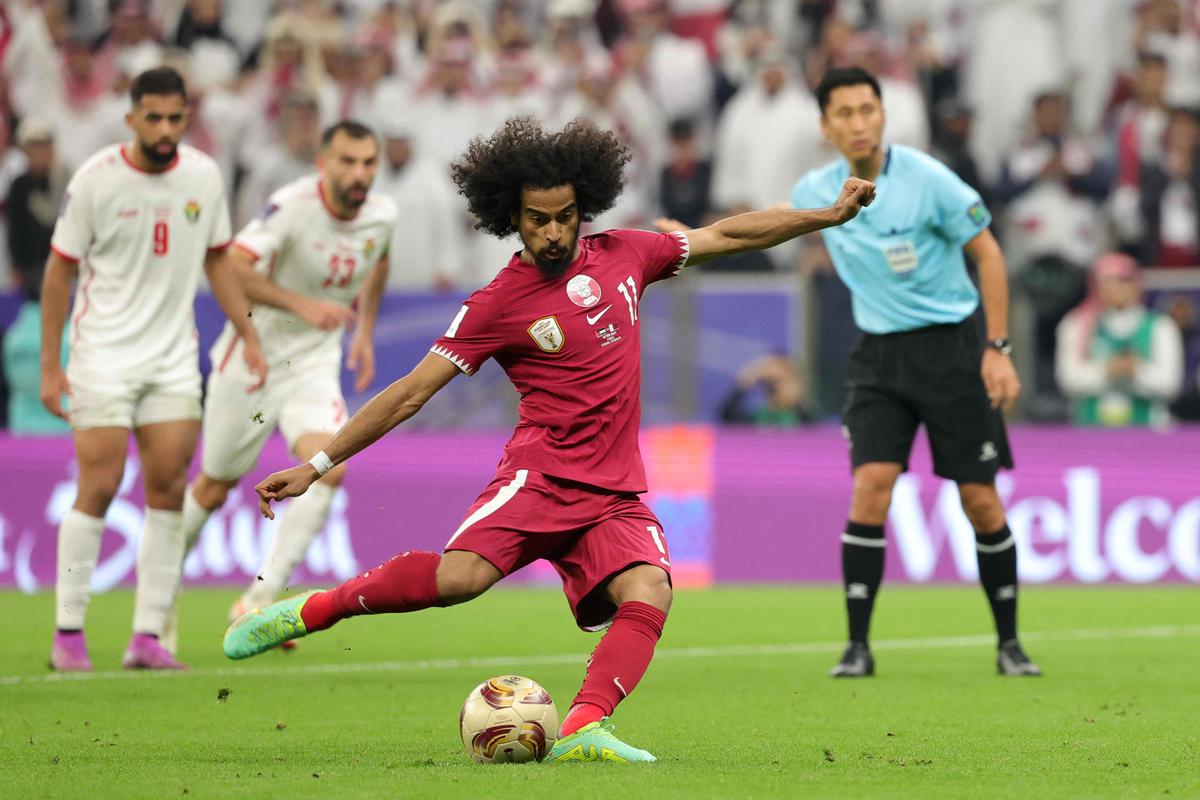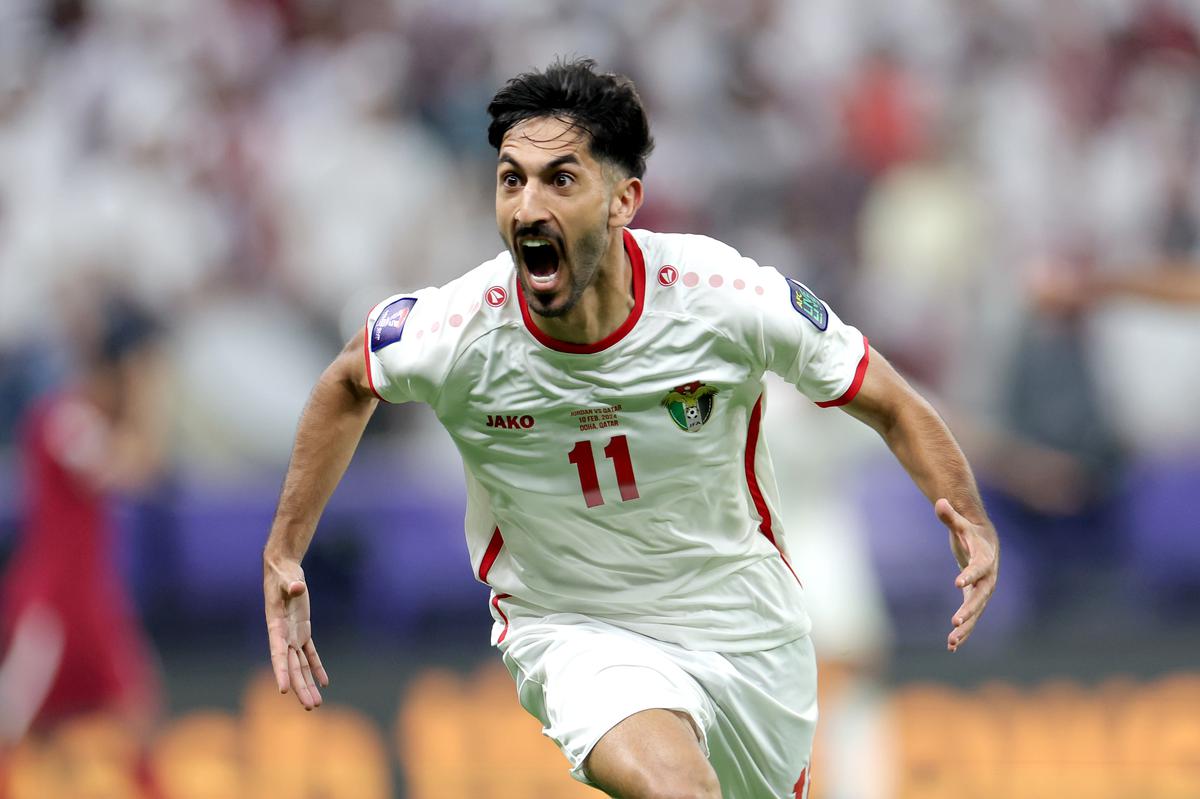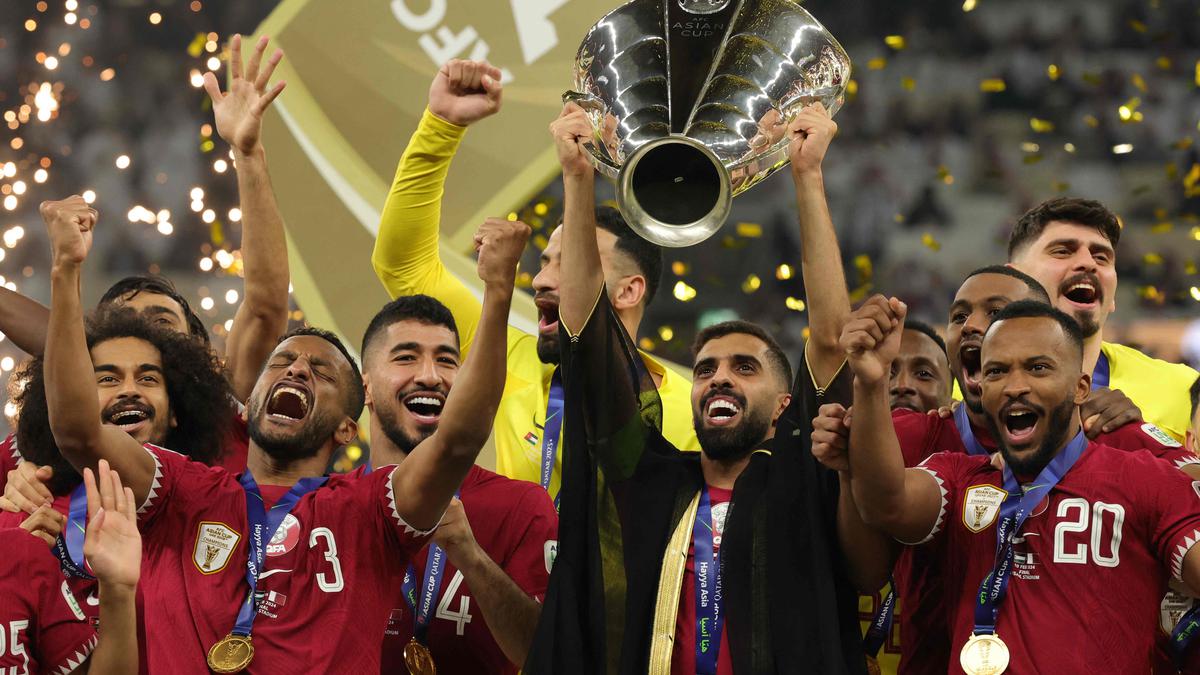Asian Cup 2023: Of Qatar’s redemption, Jordan’s fairytale run, Palestine’s history
‘Football, bloody hell.’
Sir Alex Ferguson’s famous aphorism has been iterated so much that it feels too trite to recall. But it still emerges as a phoenix, absolving the sport of any figment of predictability.
At the Asian Cup 2023, the biggest tournament in Asia after the World Cup, that became the norm rather than an aberration.
As compared to the 2019 edition, the only other 24-team Asian Cup before this, it had more goals, double the number of penalty shootouts, and thrice the number of decisive stoppage time goals in knockouts.
This tournament had everything — a leaf out of the World Cup’s book of grandeur, the congregation of the Arab world to support their teams, the seduction of politics into the beautiful game, and also a fair share of controversies with the refereeing.
While Jurgen Klinsmann complained about the referee giving ‘too many yellow cards’ to his players (South Korea), Iraq’s star goalscorer Aymen Hussein was sent off for time-wasting after his second yellow card — a decision that saw Jordan ultimately win that game 3-2.
Qatar exorcises horrid memories of World Cup
The Asian Cup came a full circle on February 10, with Qatar winning consecutive titles — the first in the tournament since Japan in 2004 — at the same venue where it began its campaign, the Lusail Stadium.
Akram Afif, the architect of its title run four years ago — with the maximum number of assists (10) — scored a hat-trick of penalties to disarm Jordan 3-1 and win the title where Lionel Messi won the World Cup in 2022.
Qatar, in that tournament, had made itself a laughing stock, losing all three games and finishing as the worst-performing host.
Nearly 14 months later, it has become the King of Asia in style, with Afif putting on the hat of Houdini and celebrating with magic, literally, after scoring.

Showstopper: Qatar saw different leaders step up in different games, starting with Akram Afif, who scored a hat-trick in the final, making runs along flanks and feeding long balls for set-pieces.
| Photo Credit:
AFP
Showstopper: Qatar saw different leaders step up in different games, starting with Akram Afif, who scored a hat-trick in the final, making runs along flanks and feeding long balls for set-pieces.
| Photo Credit:
AFP
Tintin Marquez, taking charge of Qatar weeks before the tournament, helped the side play using through balls, quick attacks, and set-pieces. And the rousing reception at every home game added further seasoning.
The host started with a 3-0 win against Lebanon and maintained clean sheets throughout the group stage, beating Tajikistan and China 1-0. It showed its pedigree in the knockouts, beating Uzbekistan on penalties, pulling off a comeback win against Iran and finally sealing the title against Jordan from a 1-1 position.
READ | To Gaza, with love: Palestine looks to give hope in times of war at AFC Asian Cup 2023
Qatar did not turn heads only by hosting the tournament. It did so by winning it too.
Teams beyond individuals take centre stage
This Asian Cup pushed the old notions of clear-cut winners and losers, in the realm of teams with European experience and high-profile stars, into oblivion. Instead, the errant nature of the sport made way for stories of fortitude and joy from unexpected corners.
Palestine — a country in peril through constant bombardment from Israel, and with families of several of its players facing an uncertain fate — scripted history. It beat Hong Kong 3-0 in its final group-stage match and made it to the round of 16, earning a win and a knockout spot for the first time.
Jordan, one of the lowest-ranked sides to ever reach the final (87th), beat sides ranked 24 and 54 spots higher (Iraq and South Korea, respectively) on its way.
The Nashama did not have Son Heung Mins or Mehdi Taremis but still persevered, working as a well-oiled machine under coach Hussein Ammouta despite a debilitated infrastructure back home.

Night of heroes: Yazan Al-Naimat scored the only goal for Jordan in the final.
| Photo Credit:
Getty Images
Night of heroes: Yazan Al-Naimat scored the only goal for Jordan in the final.
| Photo Credit:
Getty Images
The most prominent story, however, was that of Tajikistan, the only debutant and one of the lowest-ranked teams. With its record goalscorer Manuchekhr Dzhalilov out with cancer and veteran midfielder Amirbek Juraboev injured, the team came in as a minnow on paper. But, playing as a unit, the team, ranked 106, punched way above its weight, reaching the quarterfinals with a win against the United Arab Emirates — ranked 64 — on penalties.
Qatar, too, saw different leaders step up in different games, starting with Afif making runs along flanks and feeding long balls for set-pieces to captain Hassan Al-Haydos scoring the winner against China through a brilliant volley. Goalkeeper Meshaal Barsham became the star in the quarterfinal through three crucial saves in the penalty shootout.
Moriyasu’s heartbreak and end of ‘Zombie Ball’
Two of the biggest shocks of this Asian Cup were the exits of Japan, the highest-ranked and the most successful side in the tournament, and South Korea, led by Tottenham Hotspur’s captain Son.
Japan was first humbled by Iraq in the group stage and then, Alireza Jahanbakhsh’s stoppage-time penalty showed Hajime Moriyasu’s side the door in the quarterfinals.
South Korea, on the other hand, almost emulated ‘Fergie Time’, pulling off an equaliser or even a winner on the verge of full-time to snatch success from the jaws of defeat multiple times.
The approach, deemed as ‘Zombie Ball’ by the Korean press, saw Son score the winner against Australia in the quarterfinal but Jordan saw it out in their battle for the summit clash.
The Asian Cup’s theme song, Hadaf, revolves around what exactly should a goal ideally be. After nearly a month of the contest, it ended with the answers — joy, empathy and patience, all that constitutes not just the beautiful game but also life. And that’s where the tournament was truly successful.



